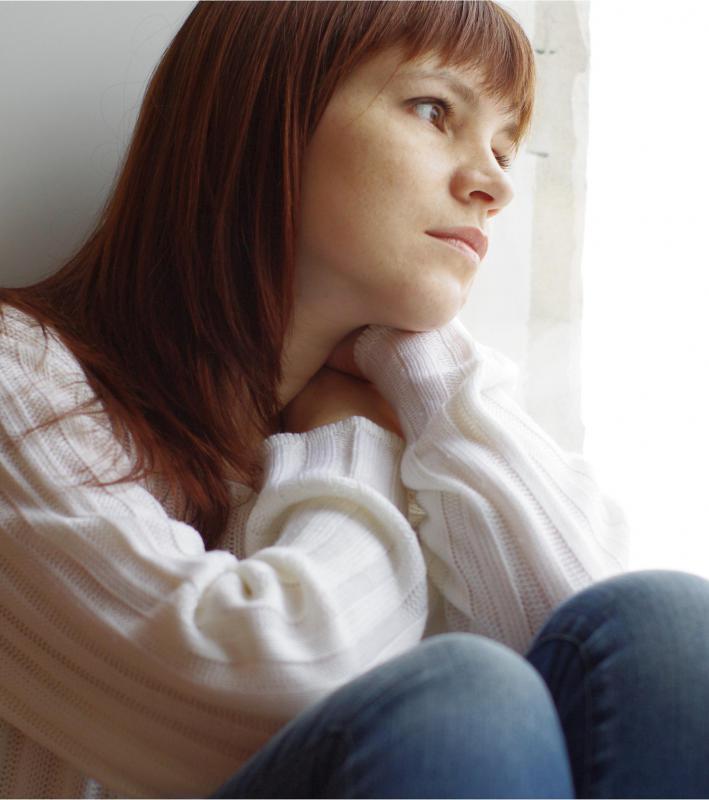At WiseGEEK, we're committed to delivering accurate, trustworthy information. Our expert-authored content is rigorously fact-checked and sourced from credible authorities. Discover how we uphold the highest standards in providing you with reliable knowledge.
What is Hope Therapy?
Hope therapy is a fairly recent idea with a fairly basic point. The main way this therapy is practiced is by teaching people in a group class setting to become more oriented toward positive goals and behavior that will help them achieve their goals. It is separate from the idea of optimism, which is generally having a pervasive belief that good things are likely to happen. Instead, researchers like Jennifer Cheavens of the University of Ohio, believe that people can be taught to improve their outlook and minor depression in class settings, instead of through traditional talk therapy, which tends to focus on negative experiences. Her work in this field is published in Social Indicators Research and she has presented her studies to the American Psychological Association.
Cheavens conducted two studies, the first with people with severe macular degeneration, and the second with a group of people with mild depression, who were not classed as having a mental illness. In both cases, work with the groups yielded some surprising results. Most people learned how to create goals, how to determine ways to reach goals and learned how to use positive self-talk. Instead of focusing on negative incidents, hope therapy relied on positive goal-based training. Many people in the groups noted significant elevation of mood, were able to absorb the training and became more goal oriented and were successfully able to use positive self-talk to diminish negative thinking patterns.

Hope therapy isn’t just about the “power of positive thinking.” Instead it is based somewhat on the cognitive behavioral model of therapy which works to replace old or negative “hot thoughts” or core beliefs with new ones that are more truthful and positive. However, cognitive behavioral therapy (CBT) does spend at least some time analyzing how negative thoughts or experiences have influenced thoughts and behavior patterns in the here and now. Hope therapy appears to differ from this by focusing more on simply learning to change mindset, without much examination of what caused negative mindset in the past.

Cheavens’ work has set off something of a media firestorm regarding whether hope therapy presents a cure for depression. It is important to note that thus far her work has not focused on people diagnosed with clinical depression. Extrapolating potential for a cure to depression from two studies is jumping to conclusions. Other criticism of the therapy centers on belief that people who have experienced trauma may need to discuss this. The talk therapy setting may be the only place where, for example, a rape victim can discuss her experiences, and this may be a helpful and cathartic process.

Note that Cheavens hasn’t presented hope therapy as a cure for major depression or trauma. Yet it might be applied in traditional therapy sessions as an adjunct method of helping people improve their mental mindset more quickly. In other words, hope therapy may become an integral part of other methods like CBT, and might be the only needed therapy for people who do not require other, such as pharmacological, treatments for certain conditions.
AS FEATURED ON:
AS FEATURED ON:















Discussion Comments
@ZipLine-- I don't think that hope therapy is too good to be true. The basis of the therapy is actually very simple. If people concentrate on their strengths and work to improve them rather than dwelling on their issues, they can overcome their emotional problems. It's basically a great way to build confidence.
Conditions like depression give people a distorted view about themselves, their lives and the world. They develop black and white thinking and always see the glass as half empty. Hope therapy teaches people to see things objectively again. It emphasizes people's strengths, their good traits and successes. Dwelling on the negatives has never helped anyone. But dwelling on the positives gives people hope to never give up and keep trying. I think we all need hope in our lives.
I think hope therapy sounds too good to be true and it hasn't really been studied and applied enough. I don't think the preliminary studies are conclusive about this therapy type. Plus, most types of therapy help for a while. It's what happens after the therapy is over that's important.
I'm interested in hope therapy because I like the idea of concentrating on positive thoughts. I've received cognitive behavioral therapy in the past. I'm not a proponent of this therapy because it can be very challenging to think about and discuss negative thoughts and problems. Cognitive behavioral therapy actually made me more sad and depressed in the beginning. I was told that this therapy first shows a downward spiral in mood, but then it goes up. So eventually, one is supposed to feel better.
But what if someone is not strong or willing enough to get through the tough beginning? What if they quit at that point? I think that hope therapy sounds better because people are more likely to stick with it. It's a therapy that helps people feel better, not worse and I like that. I definitely want to benefit from this therapy.
Post your comments